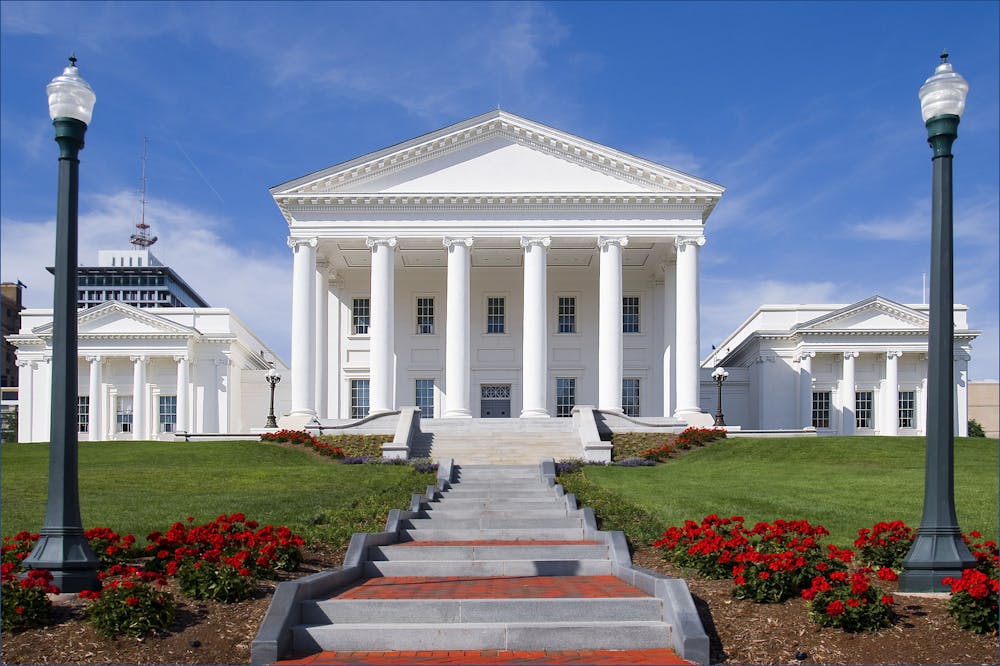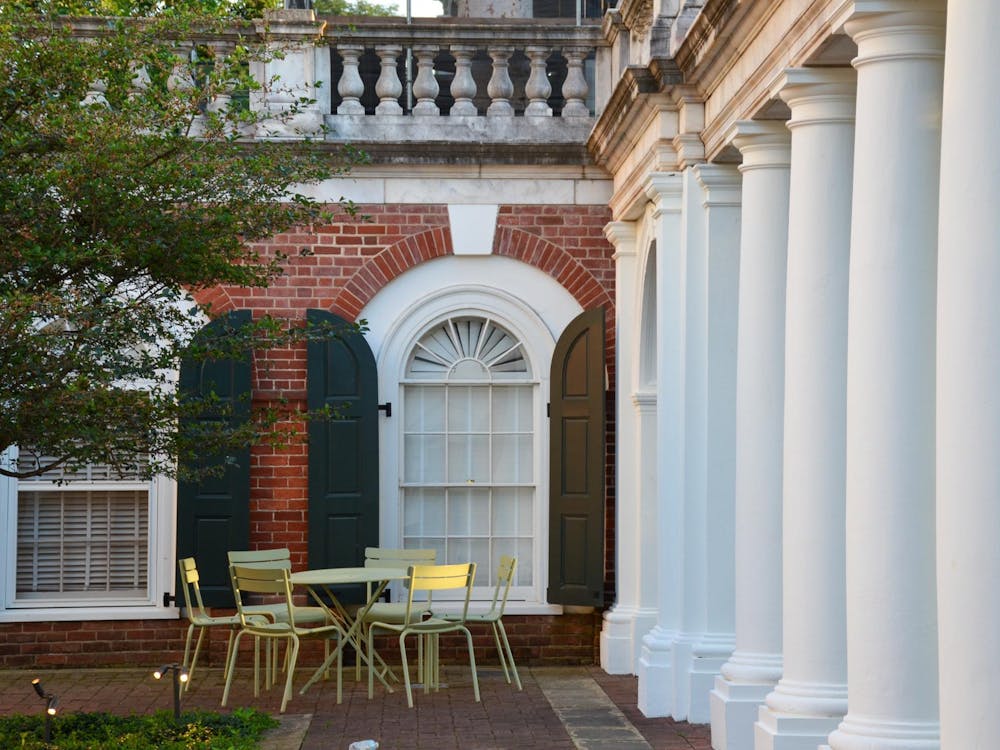After months of dispute between Virginia Senate Democrats and the Youngkin administration over appointments to universities’ governing boards across the Commonwealth, the governor’s office now says it will stop reporting appointments to the General Assembly for consideration.
Gov. Glenn Youngkin’s Counsel Richard Cullen wrote in a letter Tuesday in response to Sen. Aaron Rouse, D-Norfolk, and Del. Cia Price, D-Newport News, that the governor would not provide reports to the General Assembly on his nominees because of the ongoing dispute over gubernatorial appointments.
The governor makes appointments to positions across the Commonwealth most Fridays, including boards for education, soybeans, labor and many others. These appointments are typically reported to the General Assembly for consideration every 60 days.
Youngkin was 13 days late to his report in August, but eventually submitted it. When he did not submit his report ahead of the Oct. 1 deadline, Democrats sent a letter asking for the reports promptly.
“Notably, this interpretation — that the reporting requirement applies during all periods between regular sessions regardless of special sessions — has been consistently followed by your administration since Governor Youngkin's inauguration in 2022, and indeed by every Virginia governor preceding him,” Rouse and Price wrote.
The letter, sent Oct. 3 and authored by Price and Rouse, requested the information from the governor “without further delay,” citing the Virginia code which requires the governor to make those reports. When Cullen responded on behalf of the governor, he cited the recent blocking of appointments to university governing boards to say that the governor would not submit reports at this time.
“Instead of using the regular order to properly consider these appointments in January, the Democrat majority instead wants these reports now in order to bypass years of tradition and comity to attempt to deny all 140 General Assembly members their constitutional duty to consider these qualified Virginians,” Cullen wrote.
Rouse did not respond to a request for comment, and a spokesman for the governor pointed to Cullen’s letter as the official statement.
Since June, Senate Democrats have blocked 22 appointees to governing boards at three universities in the Commonwealth. Democrats most recently blocked appointees in the Senate Privileges and Elections Committee Aug. 28.
State Republicans have argued that Democrats did not have the authority to block appointees to governing boards at the University of Virginia, George Mason University and the Virginia Military Institute because the General Assembly is not currently in session, and because the nominees never went before the full Senate and House as required by law.
Democrats have argued that a special session opened in 2024 was never actually concluded, allowing them to take up the appointments in committee and vote them down like any other bill. When other bills do not make it out of committee, they fail before reaching the floor.
However, if the General Assembly is in special session, Cullen said, then the reports are not mandatory, because they are only required to be produced in between sessions. Senate Majority Leader Scott Surovell, D-Fairfax, pointed out that the governor has not missed a report the entirety of his term — even when a special session has been in place.
“This governor, for the last three and a half years, has followed that law and so has every governor before him,” Surovell said. “Until today, no one has said ‘we don't have to do this.’”
Since the last report, Youngkin has made over 100 appointments to boards across Virginia, not just university governing boards. Surovell said those nominees are currently serving despite not being referred to the General Assembly for confirmation. Democrats have already taken universities to court over governing board nominees serving after being voted down by the Senate, and won in Fairfax County Circuit Court in a temporary decision. Now, that case has been appealed to the Supreme Court of Virginia.
Surovell said making appointments without reporting them to the General Assembly shows that Youngkin wants to be an “absolute ruler” of Virginia.
“The governor's office is breaking the law by telling these members that they could sit after being rejected,” Surovell said. “They've decided to figure out a different way to break the law because they're so desperate to or whatever.”
So far, the governor has not attempted to make any new appointments to the boards at U.Va., GMU or VMI. Those boards have vacancies — GMU’s with so many that it does not have a quorum. Surovell said that while the governor is not required to make any new appointments, he is required to report the ones he has made.
Based on Cullen’s argument, the Democrats should not take up these appointments until the next regular session begins in January, meaning the governor may not provide reports until then — when he will be out of office.
Youngkin is constitutionally prohibited from serving consecutive terms, so he could not run for re-election until 2029. That means the next governor would inherit the current disputes if not resolved before January. Democrats hope that governor is former Rep. Abigail Spanberger, who has publicly said she supports reforming the appointment process. Spanberger has consistently led GOP Lt. Gov. Winsome Earle-Sears in public polling.
As for next steps, Surovell said future litigation is not off the table, but that Youngkin needs to answer to “whoever he swore his oath to.”
“The governor raised his hand and took an oath on the Bible that he'd uphold the laws of the Commonwealth and the constitution of Virginia,” Surovell said. “And I'd hope he'd honor his oath like every governor has before him.”







